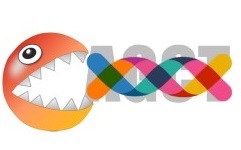Researchers at MSK have developed a free online tool to automate the interpretation of genetic variants. The study, led by computational biologist Vignesh Ravichandran and supervised by Dr. Vijai Joseph, was published in February in Genetics in Medicine and reported recently by GenomeWeb.

PathoMAN logo
Until recently only a few genes, like BRCA1 and BRCA2, were tested in people with a family history of cancer. Thanks to declining costs and technological advances, labs now offer broader gene panel testing for hereditary cancers. However, interpreting the genetic variants uncovered by sequencing is time consuming and challenging, taking up two hours for a novel variant.
In response to these challenges, the MSK team created the automated tool PathoMAN. It uses guidelines from the American College of Medical Genetics and Genomics and the Association of Molecular Pathology as a framework while aggregating publicly available records of evidence to determine clinical significance. When tested against a manually classified gold-standard set of 3,513 variants from three major commercial labs, PathoMAN concorded with 94.4% of the manually curated pathogenic variants. PathoMAN is fast and uniform, and it generates a variant curation report for one variant in 30 seconds.
The research team next plans to incorporate natural language processing into PathoMAN to allow it to add scientific literature to its analyses.
PathoMAN is openly available to the research community at http://pathoman.mskcc.org/.

